Big Tech, also known as the Tech Giants, Big Four, or Big Five, is a name given to the present four or five largest, most dominant, and most prestigious institutions in the information technology industry of the United States. The Big Four consist of Alphabet (Google), Amazon,
Apple, and Meta (Facebook)—with Microsoft completing the Big Five.
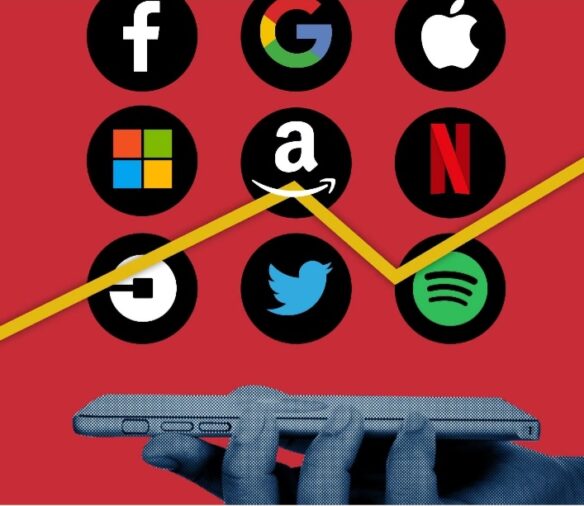
The tech giants are the prominent players in their respective areas of technology, namely: e-commerce, online advertising, consumer electronics, cloud computing, computer software, media streaming, artificial intelligence, smart home, self-driving cars, and social networking. They are among the most valuable public companies globally, each having a maximum market capitalization ranging from around $1 trillion to above $3 trillion. They are moreover considered to be among the most prestigious and selective employers in the world, especially Google.
What is Censorship?
Censorship is the suppression of speech, public communication, or other information. This may be done on the basis that such material is considered objectionable, harmful, sensitive, or “inconvenient”. Censorship can be conducted by governments, private institutions and other controlling bodies.
What is Big Tech Censorship?
Big Tech censorship is when companies like Apple, Amazon, Google, Microsoft, or Twitter get to decide what piece of media you can see or interact with on the internet. It’s when they get to act as guards of the web and decide which opinions you are allowed to share on warming issues and what contents are “safe enough” for you to consume.

Big Tech companies typically offer services to millions of users and thus can hold sway on user behaviour as well as control user data. Concerns over monopolistic practices have led to antitrust investigations from the Department of Justice and Federal Trade Commission in the United States and the European Commission. Commentators have questioned the impact of these companies on privacy, market power, free speech and censorship of national security and law enforcement. It has been speculated that it may not be possible to live in the digital world day-to-day outside of the ecosystem created by the companies.
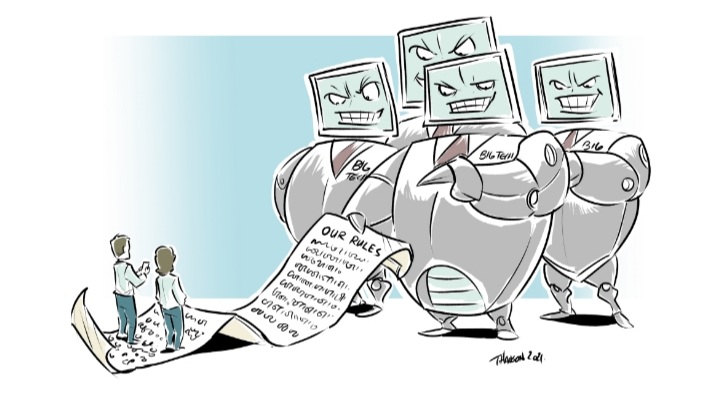
Under pressure to curtail the spread of violent and exploitative subjects, social media companies began assigning mediators to remove inappropriate substances from their platforms. While pornography and hate speech is protected by the first amendment, public emotion was that this content along with subject portraying graphic violence does not belong in digital “public squares” like social media. Tech companies restrict this subject in their terms of service.
How does the first amendment apply to the internet?
In the US, the First Amendment says that Congress shall not pass a law abridging the freedom of speech, or the press. But it doesn’t apply to private companies, like Amazon, Apple, Facebook or Google.
A social media company’s ability to suppress content isn’t limited by the First Amendment. A private company can stop you from saying what you want to say on their platform. Your freedom to submit an article or your view too is as important as their freedom to not publish your words. That much is quite clear.
Are Big Tech monopolies bad for democracy?
The framers of the constitution couldn’t have predicted the persistent rise of Amazon, Apple, Facebook and Google. In the history of democracy, there were no companies that held such power over the lives of so many people.
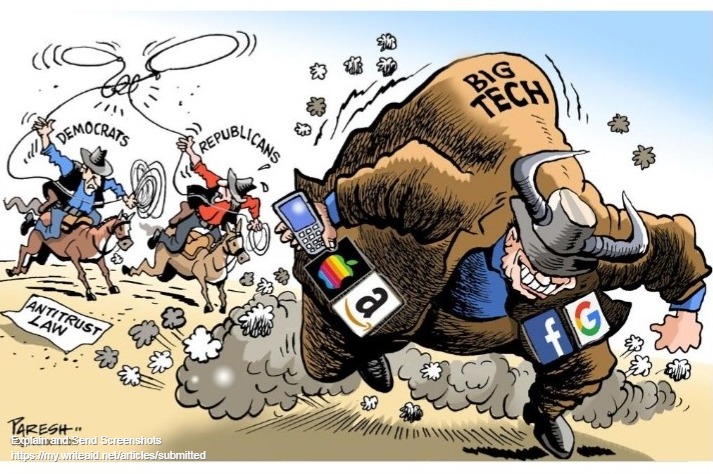
Because they’re neither public square nor publisher, tech companies can play by both sets of rules. On the one hand, like a public square, they can’t be held accountable for what’s said on their platforms; on the other hand, like a publisher, they have the right to negotiate the subject. Letting them exist in this middle ground has arguably allowed them to reach remarkable scale and influence to the point that we depend on their products and services to function.
Big Tech Censorship: Does the First Amendment Apply to the Internet?
The concerning issue, for now, is the misuse of power by big tech censorship. The main questions are:-
- Is Big Tech going too far?
- Is it rightly moderating content or suppressing free speech guaranteed by the First Amendment?
An event is being held To answer all these questions. It will be co-hosted by The Daily Caller News Foundation, The Arthur Rupe Foundation, and The Karpus Family Foundation.
Introductory Remarks will be given by:
- Kara Frederick (Director, Tech Policy Center)

Kara is director of the Tech Policy Center at The Heritage Foundation. Her research concentrates on “Big Tech” and emerging technology.
Before joining Heritage, she was a fellow for the Technology & National Security Program at the Center for a New American Security (CNAS), where she focused on high-tech illiberalism, data privacy, and digital supervision.
- Adele Malpass
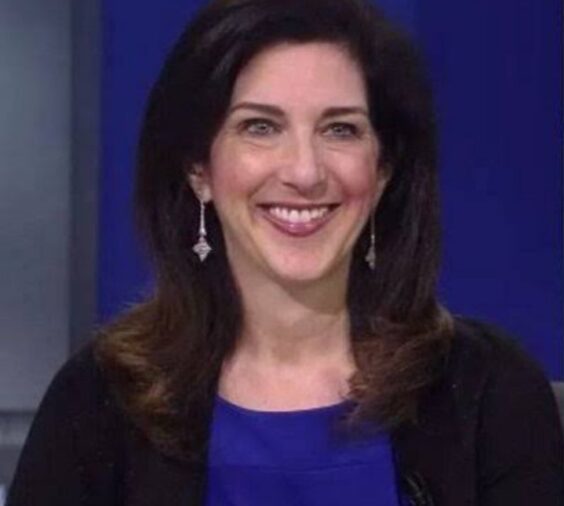
Adele Malpass is the President of the Daily Caller News Foundation, Former Chair-Manhattan Republican Party. Writer, producer, booker, on-air messenger, commentator, and budget analyst. Adele Malpass is also known for Fox Report with Jon Scott (1996). She is married to David Malpass and they have three children.
The event will also feature:
- Josh Hammer
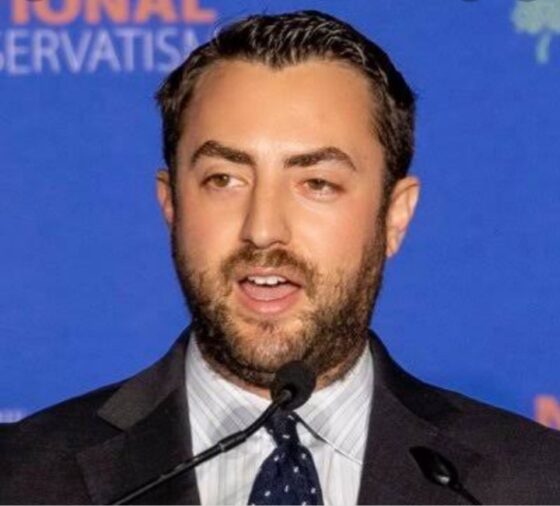
Josh Hammer is the opinion editor of Newsweek, a research fellow with the Edmund Burke Foundation, and a counsel and policy advisor for the Internet Accountability Project. He is a syndicated columnist through Creators and a contributing editor for Anchoring Truths. Hammer is a frequent pundit and essayist on political, legal and cultural issues. Josh is a constitutional attorney by training. He hosts “The Josh Hammer Show,” a Newsweek podcast, and co-hosts the Edmund Burke Foundation’s “NatCon Squad” podcast.
- Niam Yaharghi
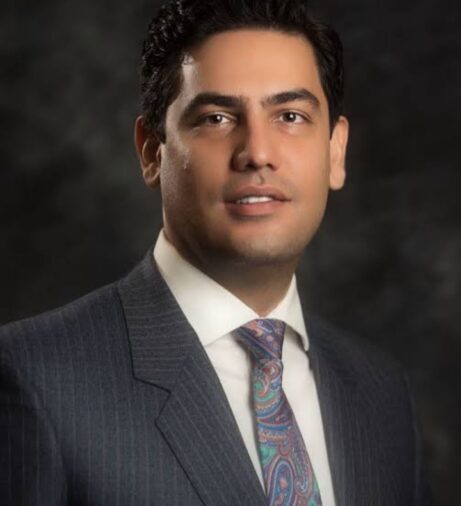
Niam Yaraghi is an assistant professor of Business Technology at Miami Herbert Business School at the University of Miami and a nonresident senior fellow at the Brookings Institution’s Center for Technology Innovation. His research is focused on the economics of health information technologies.
The event will be moderated by:
- Paul J. Larkin
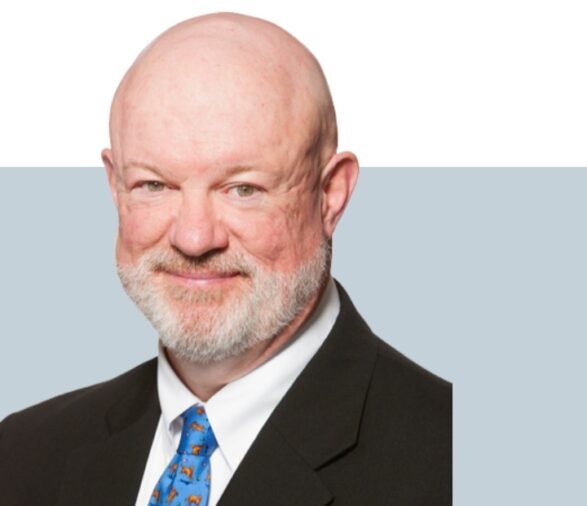
Paul J. Larkin is the John, Barbara, and Victoria Rumpel Senior Legal Research Fellow in the Meese Center for Legal and Judicial Studies. Larkin works on criminal justice policy, drug policy, and regulatory policy and is also Senior Legal Research Fellow, Meese Center for Legal and Judicial Studies, Institute for Constitutional Government
Before joining Heritage in September 2011, Larkin held various positions with the federal government in Washington, D.C. At the U.S. Department of Justice from 1984 to 1993, Paul served as an Assistant to the Solicitor General and disagreed with 27 cases before the U.S. Supreme Court. He also was an attorney in the Criminal Division’s Organized Crime and Racketeering Section.
Elucidation of the event
Brookings’ Niam Yaraghi and Newsweek’s Josh Hammer take on these questions and more in an informative discussion mediated by Heritage’s Paul Larkin. Don’t miss the chance to hear their arguments on whether the First Amendment applies to the internet.
Time, Date and Venue of the Event
A reception will begin at 12:00 noon ET. It has been scheduled to take place on 5th May, Thursday 2022 from 1:00 pm – 2:00 pm. The address of the event is The Heritage Foundation, 214 Massachusetts Ave NE, Washington, DC 20002.
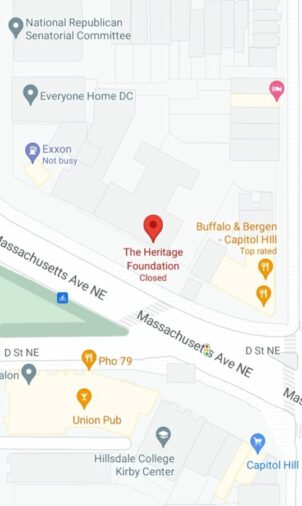
Sign up to receive invitations to all public events.
Registration
It is required to register in advance in some cases. Most of the time you may be able to register on-site. Registering for or attending an event implies you agree to the following terms and conditions of attendance. However, registration does not guarantee acceptance. Make sure to check event details for specific instructions. The seating arrangement is according to availability.
Terms and Conditions of Attendance
- Bags & Personal items
For the safety of all attendees, speakers, staff, and other program participants; all persons, packages, bags, and other containers will be checked and personal items may require to be stored during a program. In such cases, storage will be provided for your belongings.
- Recording
The organizers have the right to (1) restrict or prohibit recording and/or transmission of an event or the taking of photographs, and (2) remove anyone conducting unauthorized recording or photography.
- Decorum
It welcomes the opportunity to engage and discuss ideas and motivates you to abstain from disruptive behaviour, interference with a program, non-compliance with requests from staff or security, infringing, surveying, peddling, delaying, and any other behaviour considered incompatible at the discretion.
Table of Contents





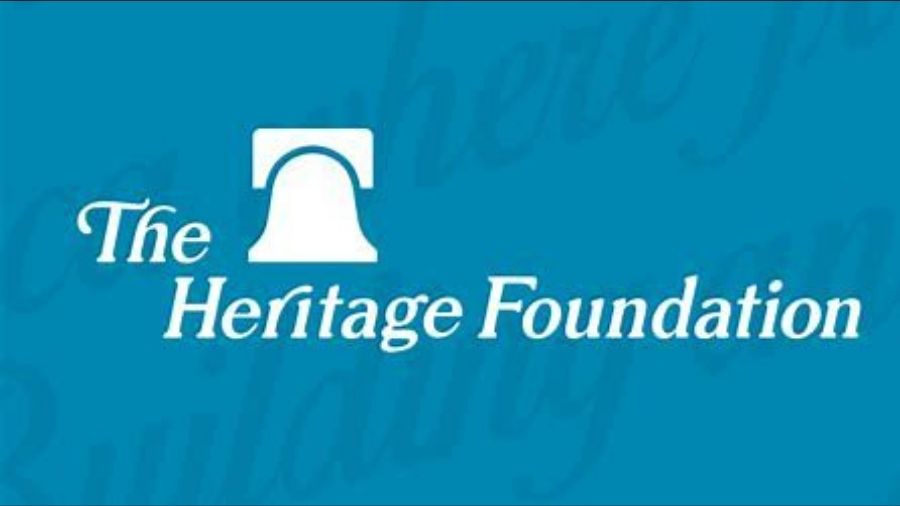

Add Comment